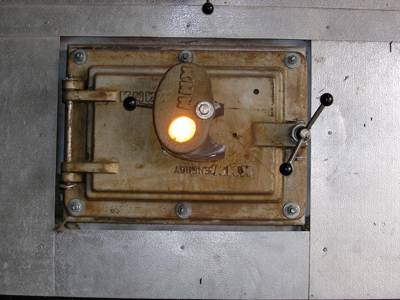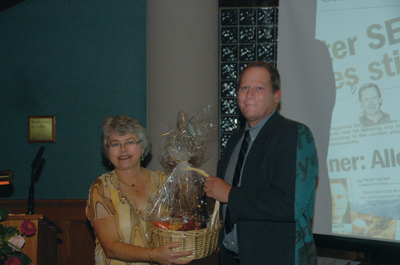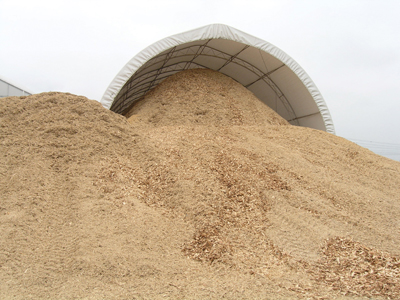
After an up and down battle over four years or more, greenhouse growers in British Columbia have finally reached agreement with both the province and Metro Vancouver (formerly the Greater Vancouver Regional District) on new air emissions standards for biomass boilers.

|
| Hot topic |
After an up and down battle over four years or more, greenhouse growers in British Columbia have finally reached agreement with both the province and Metro Vancouver (formerly the Greater Vancouver Regional District) on new air emissions standards for biomass boilers.
Metro Vancouver passed its Agricultural Boilers Emission Regulation Bylaw in October. It’s expected the province will soon follow suit with a new Agricultural Waste Control Regulation that will have standards very similar to those now enacted by MV.
MV has jurisdiction over air emissions in greater Vancouver while the B.C. Ministry of Environment has jurisdiction over the rest of the province. Almost half the province’s greenhouse industry is located in Metro Vancouver and much of the remainder is in the neighbouring Fraser Valley Regional District.
MV’s regulations have been much stricter than the province’s and the regional district has long threatened to make them even more restrictive. At one point, growers were told MV’s intent was to make the rules so restrictive no one would be able to use anything but natural gas. This caused great consternation, as more and more growers switch to wood-fired boilers in an attempt to reduce heating costs.

|
|
| BCGG president Sarah Ryall thanks Bruce Bakker for his work on the emissions issue. | |

|
|
| Workable biomass boiler emissions standards have been the subject of great debate in the Vancouver region for many years.
|
ISSUE EVEN REVIEWED BY B.C. SUPREME COURT
MV even took one greenhouse to court to determine whether it had the right to impose stricter rules than the province. After a number of decisions favouring both sides, the B.C. Supreme Court recently ruled MV did have the right to establish its own rules and to require permits of agricultural boiler operators. “We were lucky the negotiations were far enough along at that point that this decision did not derail them,” one grower commented.
Negotiations really heated up in late July 2008 after growers managed to get MV directors to defer their proposed bylaw for 90 days.
“After we got the extension, industry representatives met extensively with Metro Vancouver and the province and hammered out a bylaw which no one really likes, so it’s probably the right one,” says Langley rose grower Bruce Bakker, a past president of both the B.C. Agriculture Council and the United Flower Growers Co-op.
The new MV bylaw divides boilers into two categories, those greater than three megawatts and those less than or equal to three megawatts. Small boilers must immediately meet a filterable particulate matter limit of 100 mg/m3 with a maximum 20 per cent opacity while large boilers have a limit of 50 mg/m3 with 10 per cent opacity. By September 2010, those limits drop to 50 mg/m3 and 10 mg/m3 for small boilers and 35 mg/m3 and 10 mg/m3 for large boilers.
MV staff say their new limits are the same as those anticipated for the rest of B.C. except that the province divides its small boilers into those over and those under one megawatt. Boilers under one megawatt will only have to meet a limit of 120 mg/m3.
‘BIGGEST SURPRISE IS HOW FAR THE PROVINCE MOVED’
“The biggest surprise is how far the province moved,” says Bakker. The new limits are based on a study commissioned by the province and represent emission numbers that are “good for the environment and economically achievable given today’s economic climate. It won’t be easy but it is possible. There is no comparison to what (MV) was originally proposing.”
The one major difference between the new MV bylaw and the expected provincial regulations is in the fees. While the province charges no fees for boilers, all farmers using boilers (including natural gas boilers) in Metro Vancouver pay a $100 initial registration fee and a $200 annual fee to register their boilers. Biomass boilers will also be required to pay fees based on their estimated emissions.
“We would have hoped for a fee exemption from MV because the province is not going to collect fees,” says B.C. Greenhouse Growers Association executive director Mary Margaret Gaye, noting this would not set a precedent as MV already exempts residential and institutional boilers from paying fees.
While not prepared to allow an exemption, MV directors have ordered their staff to negotiate a fairer fee schedule with the industry.
“The proposed fee structure used the same assumptions with the agricultural sector as with the industrial sector,” Gaye explains. “The formula is based on boilers operating at 60 per cent capacity and we estimate that figure is two to three times higher than it should be. Greenhouses operate multiple boilers and usually have natural gas boilers as backup so our usage is much lower than industrial users. The data is readily available to establish a fact-based fee methodology.”
RESULT DESCRIBED AS A ‘WIN-WIN-WIN’
Bakker calls the result a “win-win-win. It’s not what we hoped for a year ago, but it’s what we hoped for after the consultations.”
B.C. Greenhouse Growers Association president Sarah Ryall agrees, calling the new standards “something we can endorse and support.”
The BCGGA was clearly grateful for the successful resolution, using their recent banquet to confer thank-you gifts to both Bakker and Gaye, as well as Mayor Ralph Drew of the tiny village of Belcarra. Even though there are no greenhouses in Belcarra, Drew was instrumental in obtaining the July deferral of the original bylaw. (Even this reporter was included in the accolades, being presented with the association’s first “Communicator of the Year” award for providing “balance” to coverage of this controversial issue.)
Print this page